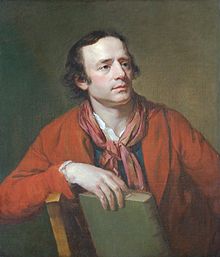Isaac Barré
|
The Right Honourable Isaac Barré |
|
|---|---|

Colonel Barré, c. 1765, by Douglas Hamilton
|
|
|
In office 1782 |
|
| Treasurer of the Navy | |
| Monarch | George III |
| Prime Minister | Lord Rockingham |
| Preceded by | Welbore Ellis |
| Succeeded by | Henry Dundas |
| Paymaster of the Forces | |
|
In office 1782–1783 |
|
| Monarch | George III |
| Prime Minister | The Earl of Shelburne |
| Preceded by | Edmund Burke |
| Succeeded by | Edmund Burke |
| Personal details | |
| Born | 1726 Dublin, Ireland |
| Died |
20 July 1802 Mayfair, London, England |
| Resting place | St. Mary Churchyard, East Raynham, England |
| Nationality | Irish |
| Political party | Whig |
| Alma mater | Trinity College, Dublin |
Isaac Barré (1726 – 20 July 1802) was an Irish soldier and politician. He earned distinction serving with the British Army during the Seven Years' War and later became a prominent Member of Parliament, in which role he became a vocal supporter of William Pitt. He is known for coining the term "Sons of Liberty" in reference to American Whigs opposed to the British government's policies.
He was the son of Peter Barré, a Huguenot refugee living in Dublin as a linen dealer, who became high sheriff of Dublin (1756). He was educated at Trinity College. While his parents had hoped he would study law, and although he had potential as an actor, Barré instead entered the British Army in 1746.
After studying at Trinity College, he joined the 32nd regiment of foot as an ensign in 1746, and was promoted to lieutenant in 1755, and captain in 1756. He served under his patron General James Wolfe on the Rochefort expedition of 1757, when he first met Lord Shelburne, and afterwards in Canada where he was appointed adjutant-general, fighting at both Louisbourg (1758) and Quebec (1759). In the Quebec expedition, in which Wolfe was killed, Barré was severely wounded by a bullet in the cheek and lost the use of his right eye, and was among the group gathered around the dying Wolfe, immortalised in Benjamin West's celebrated picture.
...
Wikipedia
